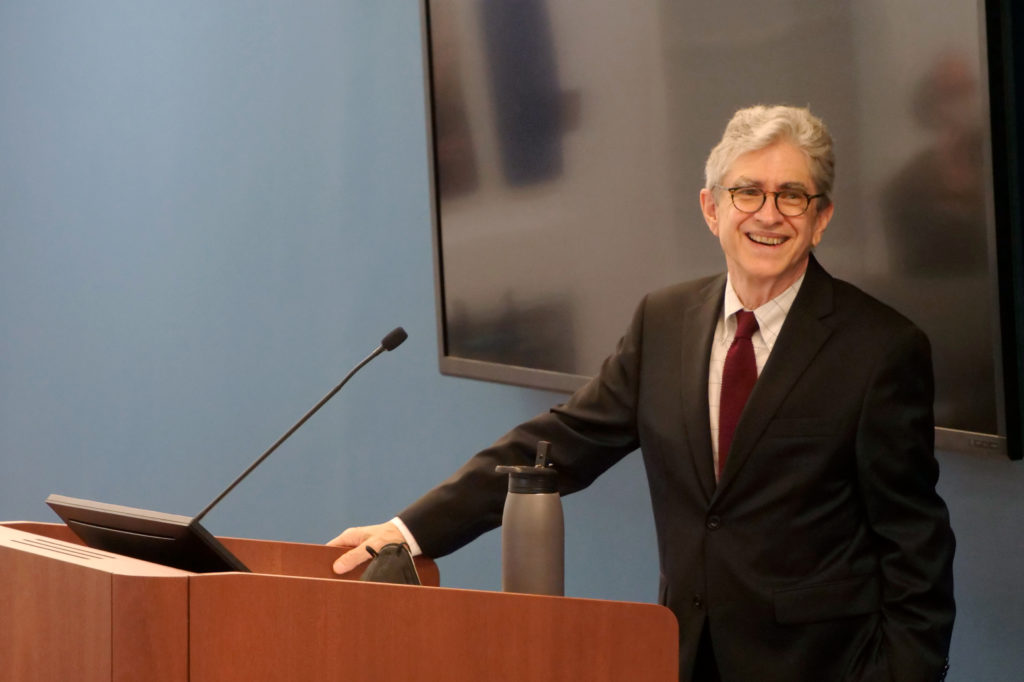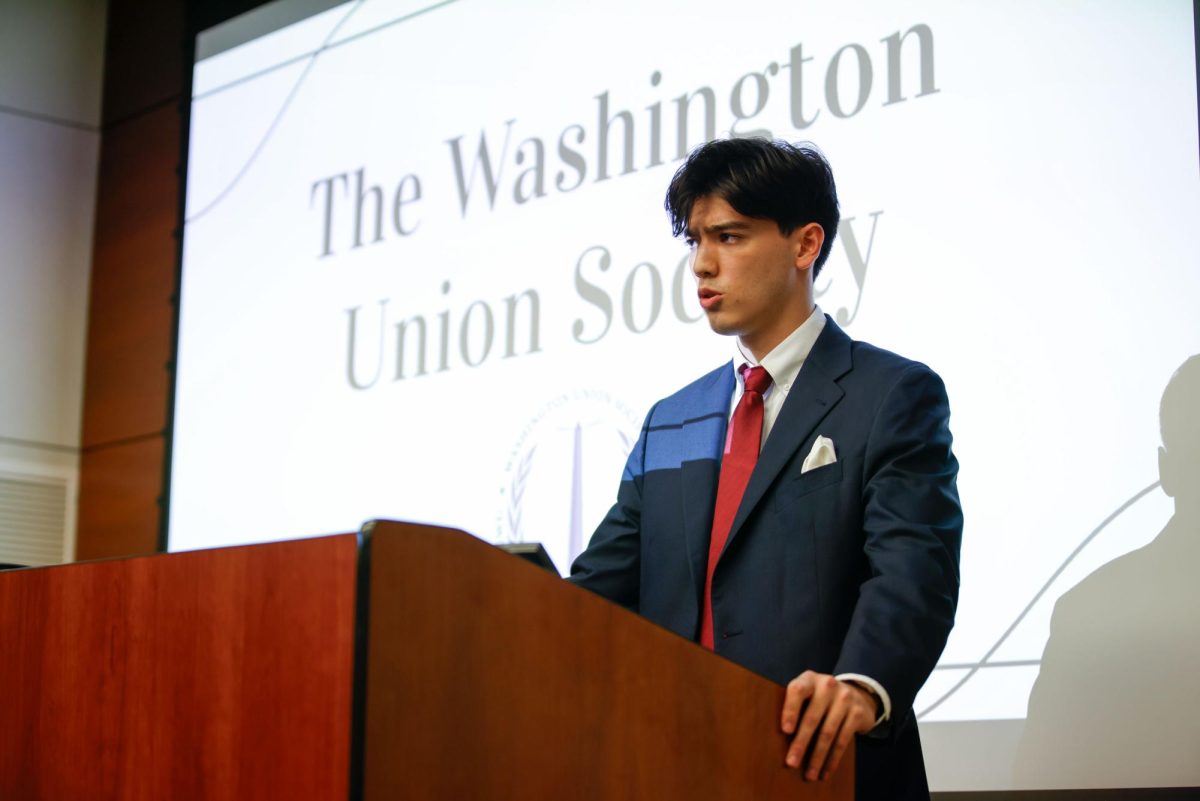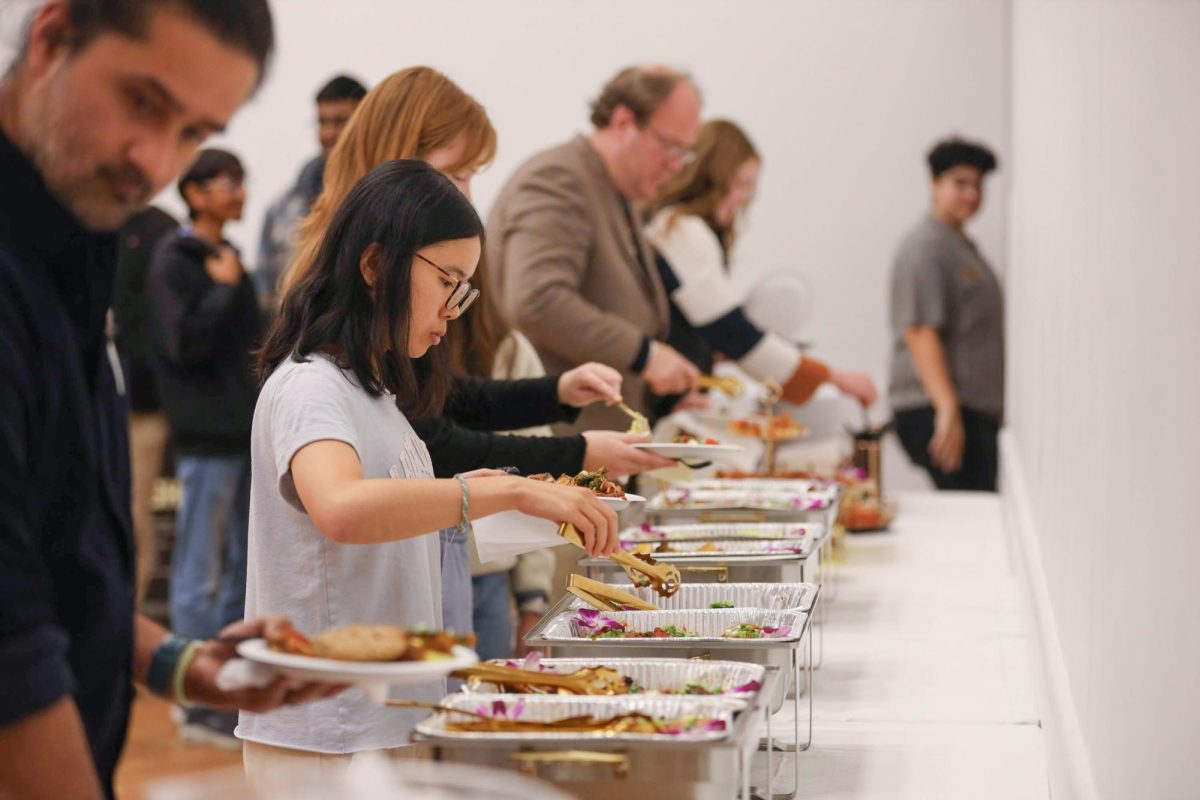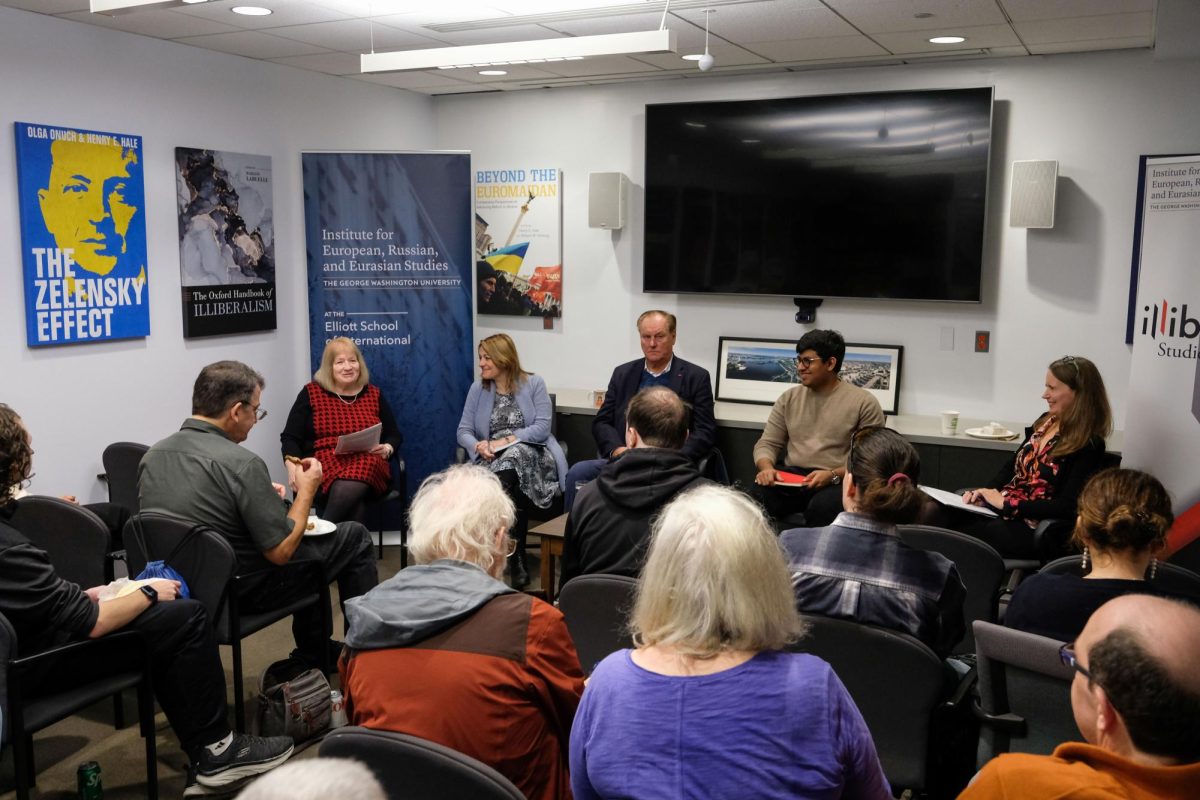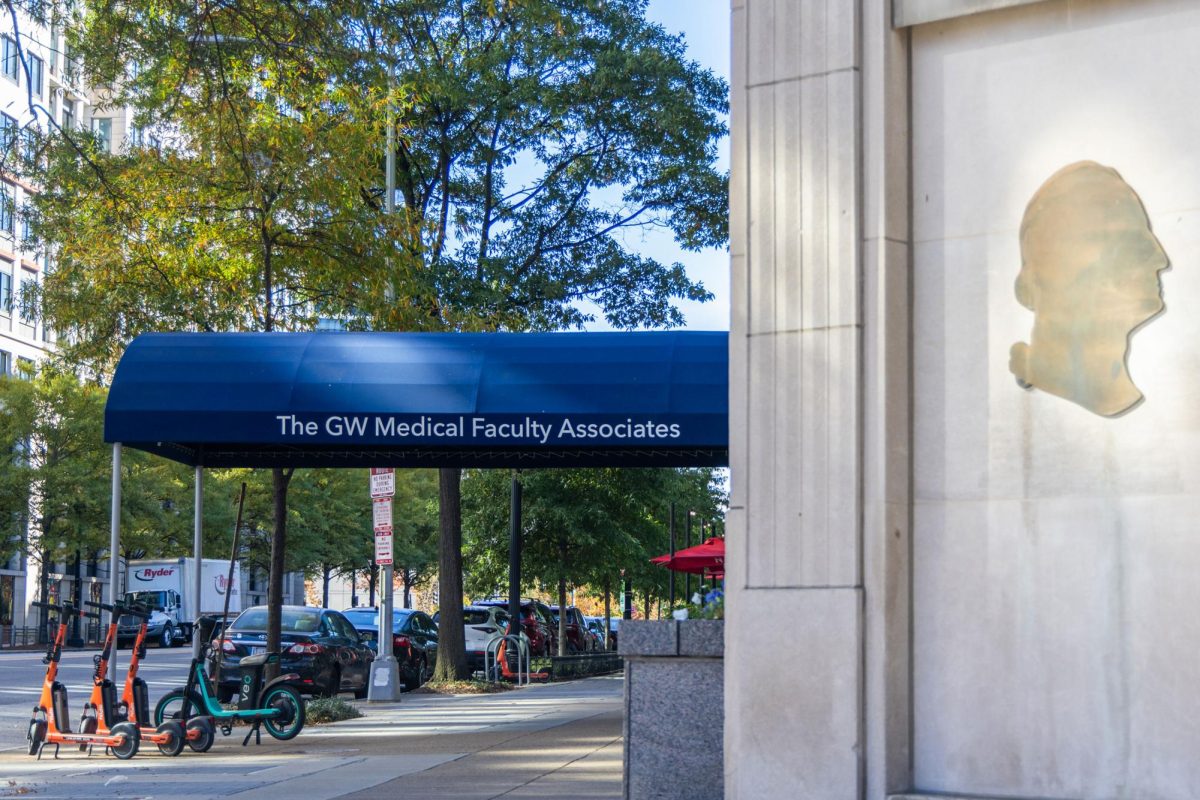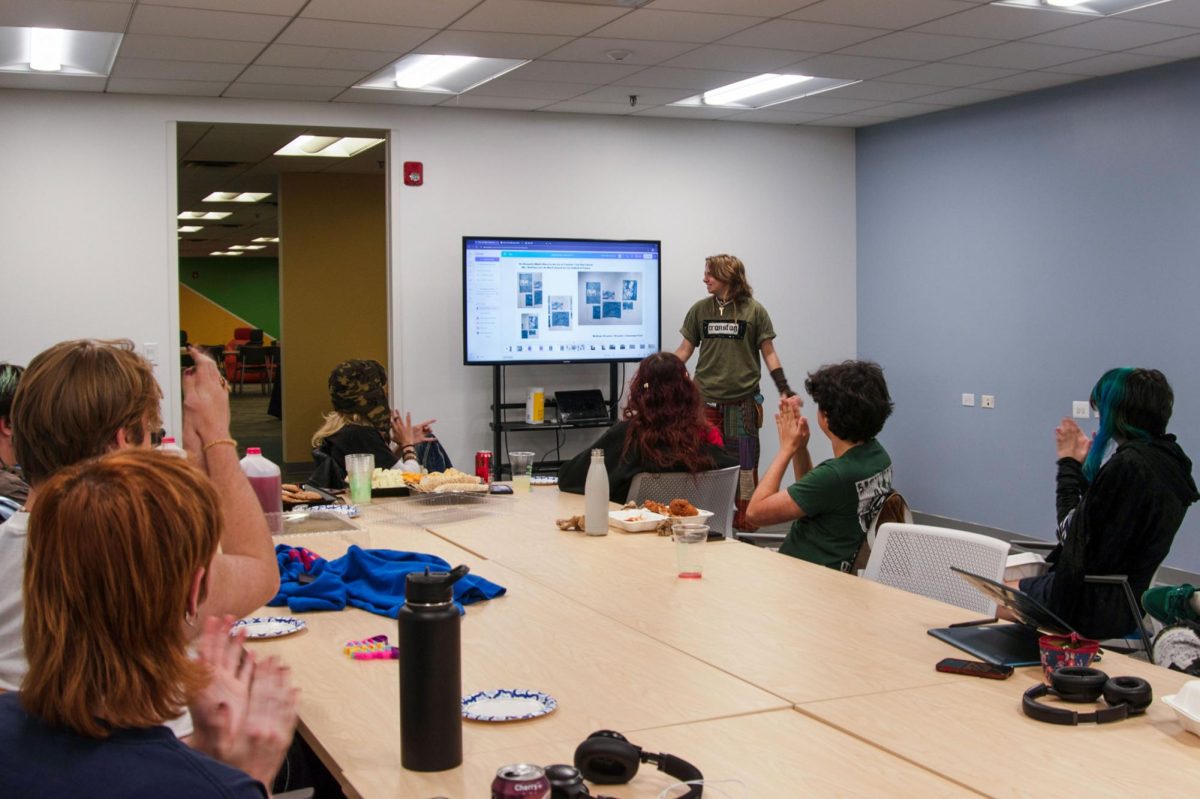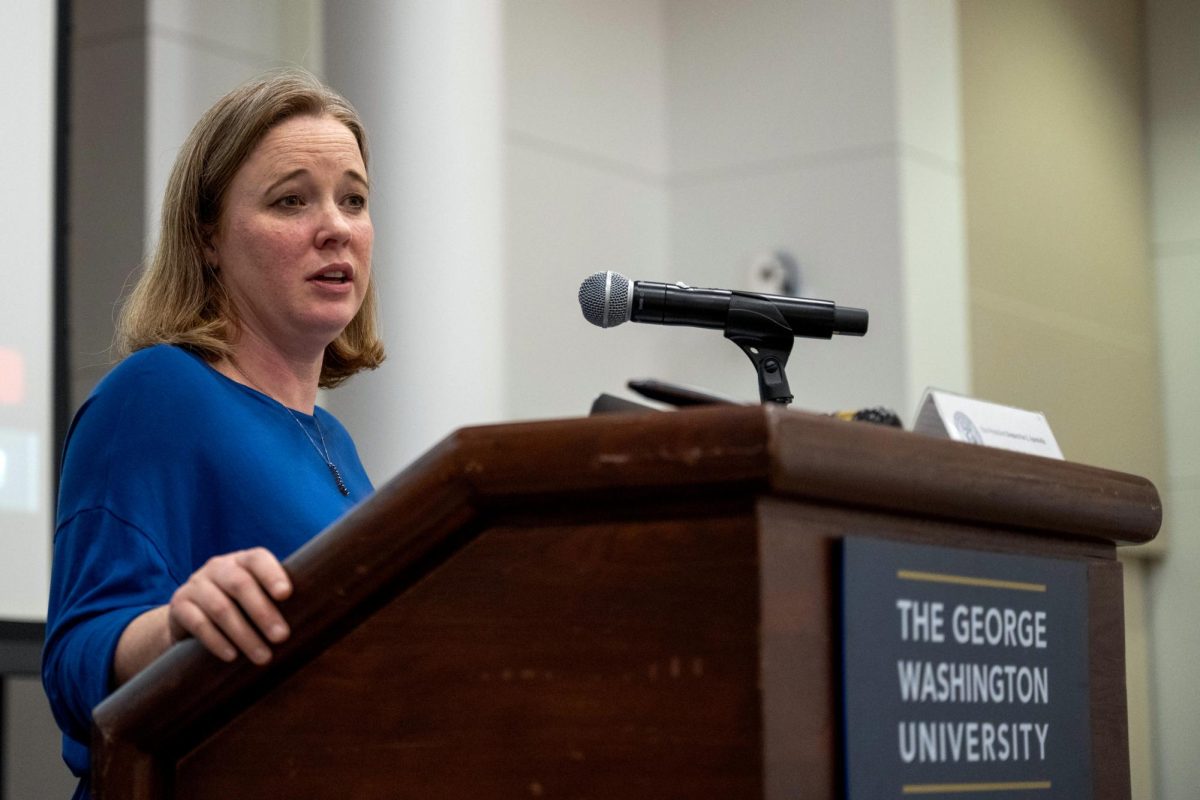The Elliott School of International Affairs and the Columbian College of Arts and Science launched a joint initiative Friday, focused on the intersection of religion and public policy.
The schools debuted the Global Affairs and Religion Network, an interdepartmental discussion group that will help foster cooperation between the two schools through monthly discussions and debates on topics ranging from global affairs to religion. About 60 people attended the event, which was co-sponsored by Security Policy Studies, Young Black Professionals in International Affairs, the Diversity and Inclusion Council and the Elliott School’s Leadership, Ethics and Practice Initiative.
Elliott Dean Alyssa Ayres, CCAS Dean Paul Wahlbeck and GARNET’s co-chairs, Rollie Lal and Irene Oh, spoke at the event. Paul Duff, a professor of religion, concluded the event with a presentation on his book, “A Borderless Society 2000 Years Ago: Christians and International Affairs in the Roman Empire,” which recaps the evolution of Christianity in the Roman Empire and its influence on the modern social and political system.
Ayres said the idea for GARNET developed last year from a group of faculty in Elliott and the CCAS religion department who met for lunch and discussed how religion and public policy could mutually aid their teachings. She said they discussed topics like faith-based representation at the United Nations and the role of religion in modern domestic politics, which they thought could create an “exciting” forum to further study public policy.
“When I heard about this lunch group, I thought to myself, ‘Well it’s not only touching on questions of religion in particular domestic contexts, but it’s also touching on the role that religion can play internationally,” she said at the event.
Wahlbeck said the new organization will help students and faculty understand global conflicts, like religious extremism, through the discussions and debates. He said faculty members who participate in the discussions could apply what they learn to their classroom lectures, strengthening CCAS’s liberal arts courses.
“I am so thrilled to see the collaboration between the Elliot School and the department of religion and more broadly the Columbian College, and I look forward to seeing even more of that in the months and years ahead,” he added.
Lal, one of GARNET’s co-chairs and an associate professor of international affairs, said the Elliott School’s collaboration with the religion department could help faculty collect knowledge and develop research for their classes and professional lives. She said the organization also features a security and religion student group that was created in April, allowing graduate students in the Elliott School to present about the topic at monthly meetings.
She said the collaboration between students and faculty is “critical” in the teaching and research of public policy and religion.
“You can see that the topics that the students cover are very essential to understand international security – these are not peripheral issues,” Lal said.
Irene Oh, GARNET’s other co-chair and an associate professor of religion, said faculty involved in the new network will organize monthly lunch meetings where a professor will lead a short informal talk about an area of interest, subject of current research or ongoing events.
“Our goals from the very beginning were one, to build intellectual community among faculty, two, to encourage faculty to engage in regular conversation across schools and three, to have fun in a supportive peer environment,” Oh said.
Oh said GARNET’s informal virtual meetings allowed for Elliott and religion department faculty to debate religion and global affairs topics, like the QAnon movement, Chinese Communist Party propaganda programs and international white nationalism. She said GARNET started with about 24 faculty members in Elliott and the CCAS religion department, but its membership has since grown “very quickly.”
“GARNET amplifies the strengths that are already in existence at GW, namely its world class faculty and its location in the nation’s capital,” Oh said.


